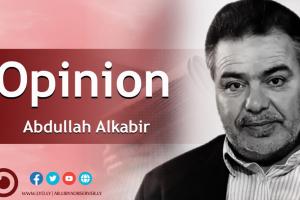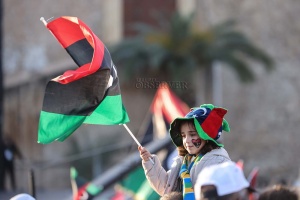By Abdullah Alkabir, a Libyan political writer and commentator
The Libyan crisis and its forthcoming scene

The bet on the House of Representatives and the High Council of State to hold elections have failed many times. At this time, a year ago, everyone was preparing for December 24 elections, except for the few who knew that they would not take place because they were working to abort them.
At that time, as the date approached, other emergency factors emerged that contributed to aborting them completely, such as the candidacy of controversial figures who were rejected by large swaths of the population, so that the elections day came as a normal day just like all other days, while everyone disavows responsibility and holds opponents responsible for this failure.
International and local pressure did not cease driving the parties to conduct elections as soon as possible, but Aqila Saleh, Speaker of the House of Representatives (HoR), and Khaled Al-Mishri, the Head of the High Council of State (HCS) continue their maneuvers to disrupt them, by invoking the existence of contentious points in the draft constitution, the need to form a unified government that extends its influence throughout the country, and to change the leaders of the sovereign institutions, as steps that must be taken to hold the elections.
Indeed, the media reported that several meetings took place between them in Cairo, to be followed by another meeting in Zintan, to put the final touches on what was agreed upon. However, the UN mission did not comment on these bilateral meetings, which the UN envoy should have participated in at least one of them.
Today, the picture is very clear, Al-Mishri and Aqila will not leave their positions unless they secured higher positions in a new transitional phase, while the Government of National Unity insists on not handing over its duties except to a government formed by an elected parliament. As for the Presidential Council, it is still distancing itself from the conflict dialectics, and disavows all responsibilities that it should shoulder. Even during the recent crisis with Greece, it did not stand up for Libyan sovereignty and issued a dull statement half of which was an unjustified courtesy to Greece.
Those fighting for power do not want to resort to elections, as they realize that it will be the first and last nail in the coffin of overthrowing them, and stripping them of lavish life and privileges that they never dreamed of, and the scene, despite all its complications, is at a crossroads. The first option is the continuation of the present moment, in futile and endless negotiations, meetings and dialogues, and the second is the success of Aqila and Al-Mishri, with the wing supporting them in the two houses, in reaching a comprehensive consensus to form a government and a presidential council, and to name new personalities for sovereign positions. However, the path towards putting these consensuses into practice is not without significant obstacles. The American, British and Turkish positions do not view a way to change the government except through elections that resolve the debate over legitimacy, and the majority of the popular position basically rejects the extension of the transitional stages and the continuation of power-sharing between the same personalities, and does not see an alternative to conducting the elections. In addition to the constitutional and legal obstacles, as Saleh and Al-Mishri are unable to provide the required quorum to pass what they agreed upon in official sessions of the House of Representatives and the High Council of State, as well as the need for the UN mission to supervise this political transformation, and then there will be a need for a political dialogue forum, which will not be limited to the HoR and the HCS, but will include political figures and other civil society organizations, and therefore things may go in directions that Saleh and Al-Mishri do not want.
The third option is serious and practical popular rejection through demonstrations against any attempt aimed at continuing the transitional stages and postponing the elections, and this way is the most viable and easiest option to force everyone to submit to the will of the people and hold elections.
Disclaimer: The views and opinions expressed in this article are those of the writer, and do not necessarily reflect those of the Libya Observer



